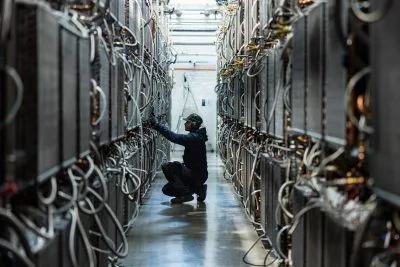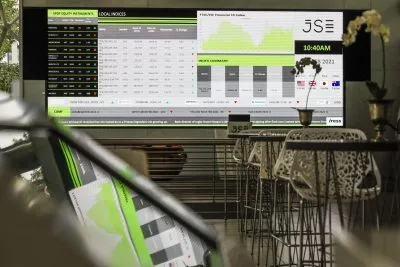With the COP27 UN Climate Change Conference well underway in Sharm El Sheikh, Egypt, I was reminded of a time, several years ago, when I worked as an oil field engineer.
I was travelling to an oil rig in the Niger Delta when I came across a woman hanging out her clothes. This woman, let’s call her Mary, lived in a modest two-bedroomed house with a pitted, corrugated metal roof.
In the bare, dusty yard stood a clothesline strung between two rusted metal poles. It was here that Mary hung out her washing to dry. A child’s coloured party dress was followed by a pair of men’s trousers and then a bedsheet that was jostled by a sudden gust of wind and briefly defied Mary’s gallant attempts to wrestle it into place.
It was the bed sheet that got my attention for it was clear it had once been white. Now it was discoloured and permanently speckled with dark soot marks as though it had been placed too close to a belching fire. A few hundred yards away I saw the likely culprit. A gas flare that burned with a loud throaty roar, spewing its rage into the air all day and all night.
Now the total respiratory area of a human’s lungs is approximately 100 square metres. That’s about half the size of a singles tennis court. Or 20 double-bed sheets. For every bed sheet that Mary hung out to dry that day, it’s not difficult to imagine that her lungs, equivalent in surface area to 20 soot-speckled bedsheets, were silently bearing the brunt of her living so near to a permanent industrial gas flare.
Can we tackle climate change with data?
Much has been written about the accelerating damage that carbon emissions, like that flare above Mary’s house, continue to have on our planet and on our lives.
Depending which side of the argument one believes, we’ve either bought a one-way express ticket to an inhospitable world in which extremes of climate become the norm, or there’s really nothing to worry about and the prophets of doom will one day be pelted with metaphorical eggs and rotten vegetables for having misled us all.
There is a third scenario however, that tries to embody both sides of the debate.
In this scenario we do make our world unlivable but manage to escape the coming apocalypse by exploiting resources on other planets. This is the premise of James Cameron’s 2009 movie, Avatar, in which humans have indeed laid waste to the Earth and now seek to do the same on the idyllic planet of Pandora.
The problem with this supposition, which the movie deftly sidestepped, is that billions of underprivileged people like Mary in the Niger delta, will most certainly be at the back of the queue when any relief, interplanetary or otherwise, is distributed.
In the face of such intractable and potentially existential questions, we often turn to the data for guidance, only to find we’ve walked into another vexing conundrum. What does it mean to tackle climate change with data? What exactly are we trying to achieve?
The scale of the problem is truly vast and to solve it properly would be much like answering the Ultimate Question of Life, the Universe, and Everything as described in Douglas Adams’ The Hitchhikers Guide to the Galaxy.
The answer to that question was 42 but climate change is much messier than that. One would need to understand the incredibly complex and dynamic interactions that exist at the intersection of economics, international trade, agriculture, urban planning, policy, population growth and geography to name a few, making this truly a big data problem.
Yet this is where simple and localised representations of data can help each of us make sense of the trajectory we are on – and take appropriate action.
Today, a West African farmer can use a machine learning app embedded in her phone to quickly identify pests infiltrating her crop. Using satellite imagery, her local banker can predict the expected yield on her farm and safely decide how much credit to extend to her.
Using similar technology, the owner of a trucking company can optimise his fleet movements and transport farm produce efficiently to markets without it rotting in the field.
But there is arguably an even more potent use of data and that is to educate and mobilise ordinary citizens to demand change from their leaders.
While the 2011 paper “Creating Shared Value” by Harvard Professors Michael E. Porter and Mark R. Kramer was a seminal moment, there remains a disconnect between the pursuit of profit and the realisation of shared value that benefits people and planet. Bringing data into the shared value construct means others can benefit from its power and not just for-profit entities.
Reducing the data divide
Unfortunately, the technology transformation has resulted in a growing data divide. While data strategies have benefited the commercial sector, the public sector and non-profits lag in education, tools, resources, and talent to use data in finding and scaling solutions.
Now more than ever, business has the opportunity to help reduce this data divide through a shared value framework that brings talent, product and resources to bear beyond corporate boundaries and help solve the many social and environmental challenges that plague our planet today.
Imagine if Mary were to ask the oil company responsible for the gas flare, to compensate her for reducing her expected life span by however many years. Or the Malian herdsman who has to travel further and further each year in search of pasture, demanding education for his children as insurance against a fast-disappearing way of life.
That only happens if more young people, and especially those from poorer countries on the receiving end of rampant climate change, become data-literate and are able to bring their lived-in experience and local perspective to the vast amount of data modelling work and advocacy that needs to be done.
For all its ills, the internet has done one very good thing: It has democratised access to cutting edge technologies which once were the preserve of well-funded national laboratories and research centres in the west.
I’d like to think that Mary’s daughter, whose little party dress I saw on her mother’s clothesline in Nigeria all those years ago, has every chance to become a data scientist and one day build models of carbon emissions in her community that may well save somebody’s life.
Ekow Duker is co-founder of Zindi, the largest professional network for African data scientists.
Want to continue reading? Subscribe today.
You've read all your free articles for this month! Subscribe now to enjoy full access to our content.
Digital Monthly
£8.00 / month
Receive full unlimited access to our articles, opinions, podcasts and more.
Digital Yearly
£70.00 / year
Our best value offer - save £26 and gain access to all of our digital content for an entire year!

 Sign in with Google
Sign in with Google 






